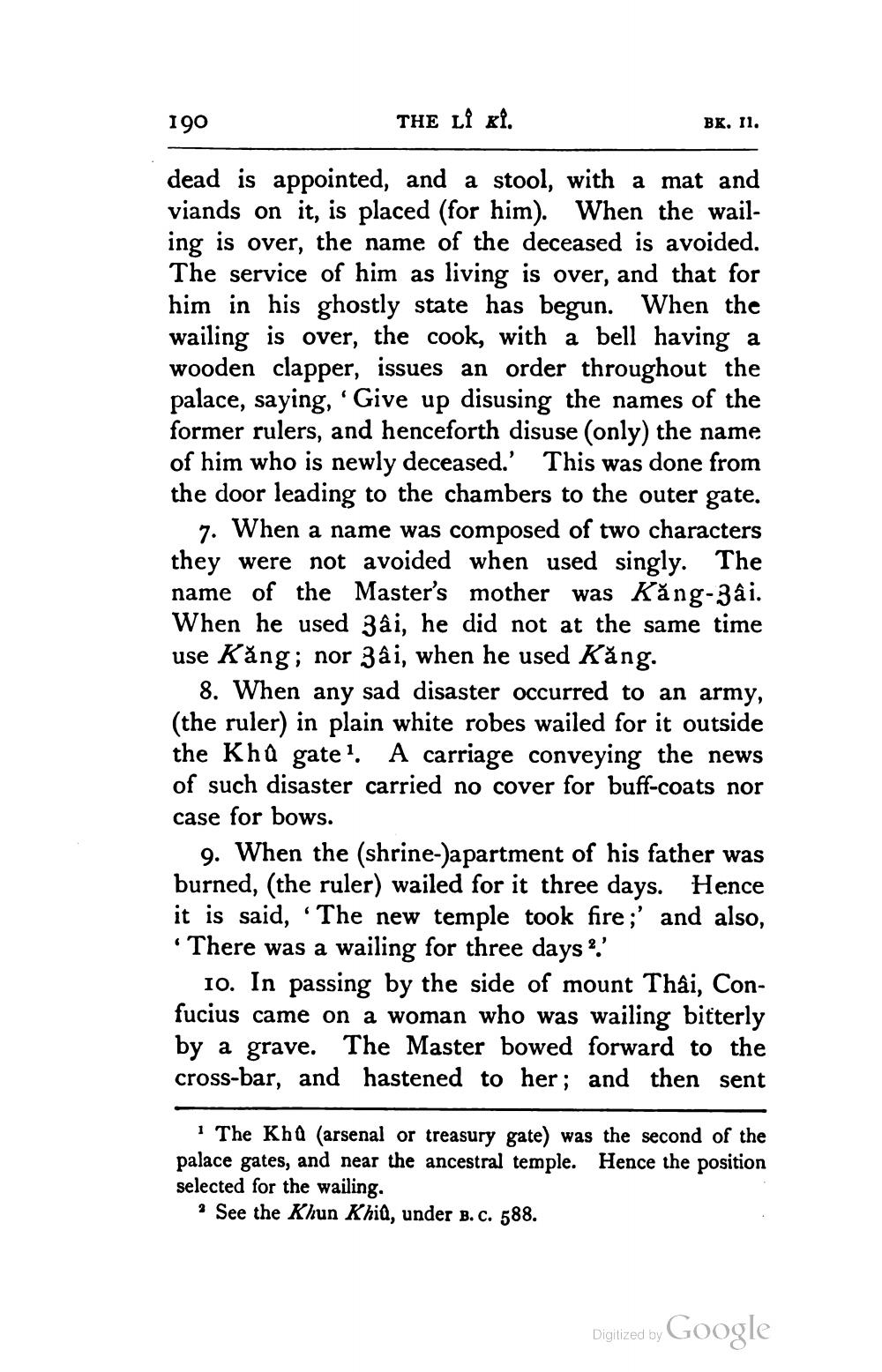________________
THE Lİ Kİ.
dead is appointed, and a stool, with a mat and viands on it, is placed (for him). When the wailing is over, the name of the deceased is avoided. The service of him as living is over, and that for him in his ghostly state has begun. When the wailing is over, the cook, with a bell having a wooden clapper, issues an order throughout the palace, saying, 'Give up disusing the names of the former rulers, and henceforth disuse (only) the name of him who is newly deceased.' This was done from the door leading to the chambers to the outer gate.
190
BK. 11.
7. When a name was composed of two characters they were not avoided when used singly. The name of the Master's mother was Kăng-3âi. When he used 3âi, he did not at the same time use Kăng; nor 3âi, when he used Kăng.
8. When any sad disaster occurred to an army, (the ruler) in plain white robes wailed for it outside the Khû gate1. A carriage conveying the news of such disaster carried no cover for buff-coats nor case for bows.
9. When the (shrine-)apartment of his father was burned, (the ruler) wailed for it three days. Hence it is said, 'The new temple took fire;' and also, There was a wailing for three days'.'
10. In passing by the side of mount Thâi, Confucius came on a woman who was wailing bitterly by a grave. The Master bowed forward to the cross-bar, and hastened to her; and then sent
The Khû (arsenal or treasury gate) was the second of the palace gates, and near the ancestral temple. Hence the position selected for the wailing.
2 See the Khun Khiû, under B. C. 588.
Digitized by
Google




